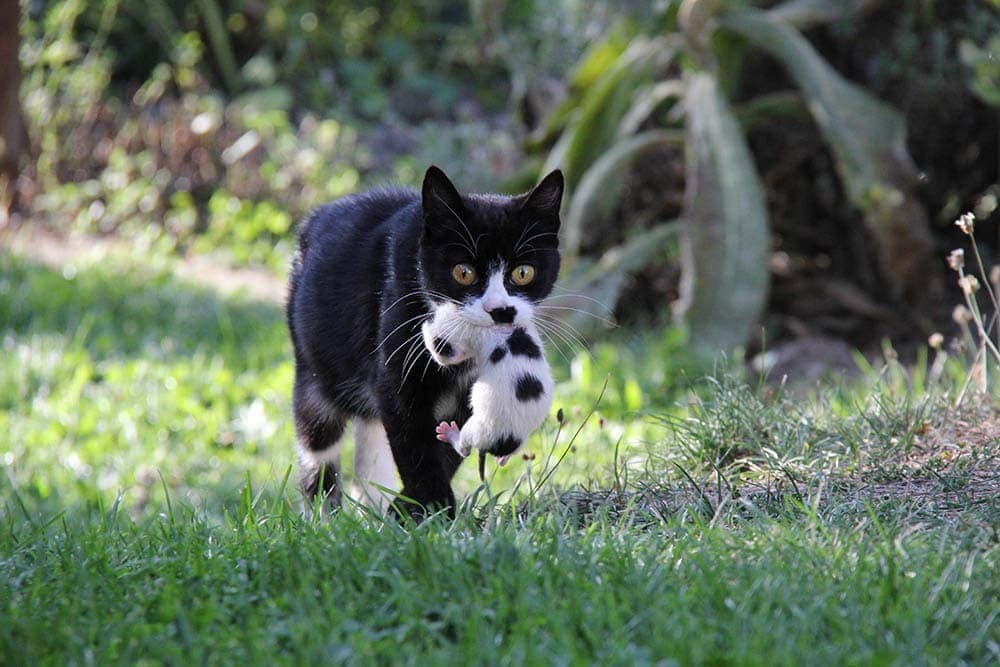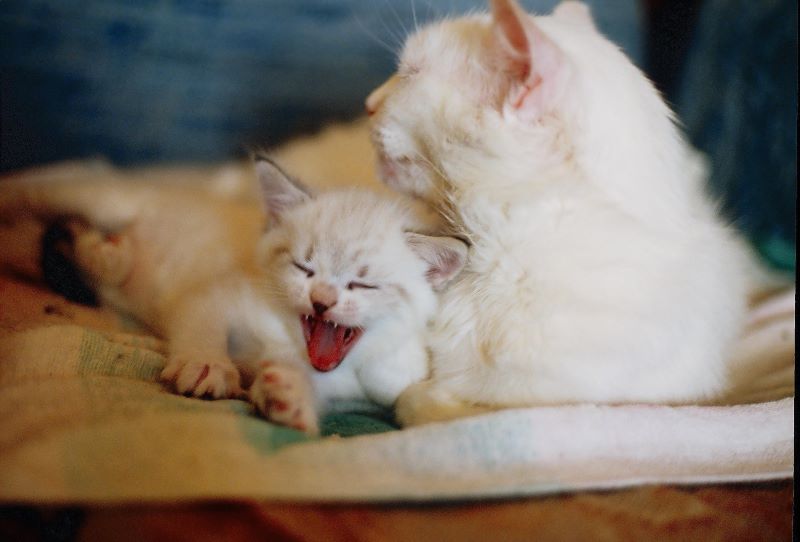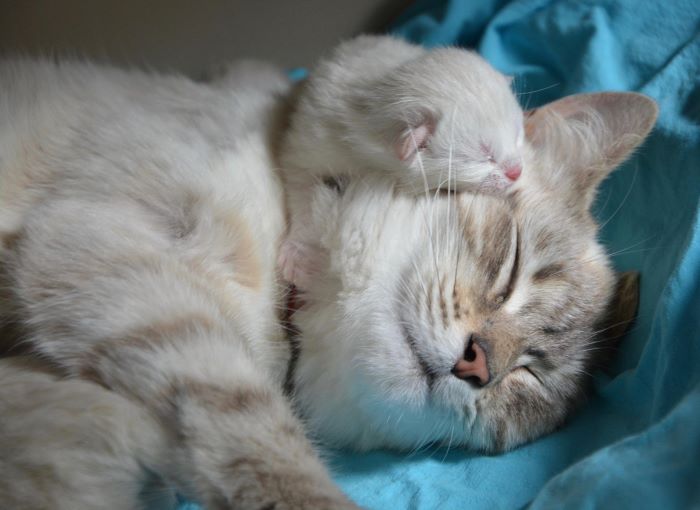Do Male Cats Eat Kittens? (Why and How to Prevent them)

Cats are generally known for their affectionate and nurturing behavior towards their kittens. However, there are instances where male cats have been observed to display aggressive behavior towards kittens. This can be a disturbing and unsettling phenomenon for cat owners, raising questions about the safety of their kittens and the nature of their cat’s behavior. In this article, we will explore the topic of whether male cats eat kittens, the reasons behind this behavior, and how to keep your kittens safe.
Do Male Cats Eat Kittens?
One of the most common questions among cat owners is whether male cats eat kittens or not. While it may seem like a gruesome topic, it’s important to understand the behavior of male cats towards kittens to ensure the safety of your feline family. The answer to this question is not a simple yes or no, as there are different factors to consider.
Firstly, it’s important to understand that not all male cats will eat kittens. While male cats can be aggressive towards kittens, they are generally protective and nurturing towards them. However, there are certain circumstances where male cats may turn aggressive towards kittens and eat them, which we’ll explore in more detail later.
Did you know that even female cats have been reported to eat their kittens? In fact, it is more common for a female cat to eat its kittens as compared to a male cat. This can be due to a variety of reasons, including stress, anxiety, illness, or a lack of resources. In some cases, they may also consume stillborn or weak kittens to keep the litter strong and healthy.
I just wanted to point that out, just so you don’t get biased agaisnt male cats.

Do Male Cats Eat Their Own Kittens?
Contrary to popular belief, male cats are not only known to consume the kittens of other cats, but also their own offspring.
While it’s not a common occurrence, male cats can eat their own kittens. This behavior is usually seen in unneutered males who are seeking to eliminate competition for mating. Additionally, male cats may kill their kittens if they perceive them as weak or sickly. However, not all male cats will exhibit this behavior, and many will be protective of their offspring.
Why Do Male Cats Eat Kittens?
Here are some reasons which may cause a male cat to eat a kitten.
- Competition for Mating: Unneutered male cats may view their kittens as competition for mating and will eat them to eliminate the competition.
- Weak or Sickly Kittens: Male cats may eat their kittens if they perceive them as weak or sickly. In the wild, this is a survival mechanism to ensure that the strongest offspring survive.
- Lack of Nutrients: Male cats may eat their kittens if they are not getting enough nutrients from their diet.
- Overcrowding: When male cats are kept in overcrowded conditions, they may become stressed and resort to eating their kittens.
- Learned Behavior: Male cats who have observed other cats eating their young may also exhibit this behavior.
- Territorial Disputes: Male cats may eat their kittens if they perceive a threat to their territory, such as another male cat or an unfamiliar animal. In such cases, they may view their kittens as a liability that could attract predators or other threats to their territory.
- Lack of Maternal Care: If a mother cat is absent or unable to care for her kittens, male cats may take on the role of caring for the litter. However, if they are unable to provide adequate care or feel overwhelmed, they may resort to eating the kittens as a way to reduce the burden.

How to keep your Kittens Safe
As discussed earlier, male cats may sometimes exhibit predatory behavior towards kittens, including their own offspring. However, there are several measures you can take to keep your kittens safe.
- Keep male cats separate: If you have an unneutered male cat, it’s best to keep him separated from the kittens. This will ensure that there’s no chance of him exhibiting predatory behavior towards them.
- Neuter your male cat: Neutering your male cat can help reduce his aggressive tendencies, and make him less likely to harm the kittens.
- Monitor interactions: If you’re introducing a new male cat to the household, it’s important to monitor his interactions with the kittens closely. Don’t leave them unsupervised until you’re sure that he won’t harm them.
- Provide a safe space: It’s important to provide a safe space for the kittens where they can retreat if they feel threatened. This could be a separate room, or a bed or crate where they can feel safe and secure. It would be ideal if this was a place where a male cat could not enter (like a small opening).
- Keep kittens indoors: Keeping your kittens indoors can help keep them safe from predators, including male cats. Outdoor cats may view kittens as prey, so it’s best to keep them indoors until they’re old enough to defend themselves.
- Presence of the Mother cat: For safety, keep the mother cat during any interactions between the kittens and the male cat. However, some female cats may not appreciate this, and grow stressed. So it is important to observe the situation and act accordingly.
When to introduce a Kitten to a Male Cat
Introducing a kitten to a male cat can be a delicate process that requires careful planning and consideration. Experts recommend waiting until the kitten is at least 8-12 weeks old before introducing them to the male cat.
This is because kittens younger than 8 weeks may not have developed sufficient social skills. On the other hand, older kittens may be more challenging to socialize. At this age, kittens are more agile and able to run and climb away from potential predators, including male cats.
It’s important to note that every cat is unique, and the introduction process may take longer for some cats. It’s best to supervise the initial interactions between the kitten and the male cat. and to gradually increase their time together.
Keep in mind that cats are territorial animals, and the male cat may need time to adjust to the presence of the new kitten in their space. By introducing the kitten slowly and patiently, you can help ensure a harmonious relationship between the two cats.
Conclusion
In conclusion, male cats may eat kittens, but this behavior is not always exhibited. It can be prevented by keeping male cats separated from kittens, neutering them, and providing a safe space for the kittens.
Introducing kittens to male cats should be done carefully, and it’s best to wait until the kitten is at least 8-12 weeks old. Every cat is unique, and owners should monitor their behavior closely to ensure the safety of their feline family.


